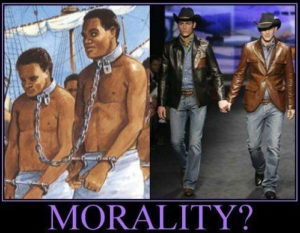Consider the ancient questions: Who am I? Why am I here? What is the universe? How did it come into being? No doubt every thinking, feeling, the human being has asked such questions since the beginning. The many and varied answers we’ve come up with can overwhelm the thinker with their contradictory details. To simplify things, I’ll divide the proposed answers into three major groups: Atheism, theism, and agnosticism.
Atheism asserts that there is no god, that the universe arose by chance, and that it is inherently meaningless. By contrast, theism says there is a being that deliberately, thoughtfully created everything, including us. The universe was scripted. It was designed as an abode for life, especially intelligent life.
Whereas agnosticism acknowledges the possibility that the universe was created intentionally, it insists that the certainty of the existence of a creator god can never be proven. Such a being, by definition, must exist outside all human experience. Agnosticism also acknowledges that a god or gods might be mere figments of our overactive collective imagination, and yet, that possibility itself can never be proven either.
Difficulties with Atheism
The atheist is far too certain about the nature of the universe. He says, “Science proves there is no god.” But science proves no such thing. All science can ever say on the subject is that the universe began and grew in a certain way, and then offer educated guesses based on extensive observations as to how it will develop in the future. Science, as rigorous an intellectual discipline as it is, can offer no proof or disproof of intentionality. The universe is. That’s all science can really claim with certainty. Any meaning that may be found for its existence must be sought out elsewhere.
Atheism insists that he has the answers to the questions with which I began this essay. Who am I? A collection of atoms and molecules are given order and purpose slowly over long stretches of time by natural selection and chance mutations. Why am I here? As a result of a reproductive act by parents. What is the universe and how did it come into being? A happy accident. An unlikely fluctuation in the quantum vacuum, which grew into space-time, endowed fortuitously with a combination of characteristics that allowed it to bring forth light and life.
But consider the obstacles we’re up against when dealing with such questions. We have enough problems comprehending a vast, ancient, relativistic universe filled with countless galaxies, stars, and planets. Now add to all that the inherent uncertainty of quantum reality. Either the universe itself is not independent of the observer, or the fuzziness’ of reality makes it far too complex for the human observer to fully grasp.
Consider the possibilities. Perhaps the universe is embedded in a mass of other bubble universes, which we might never be able to contact, let alone understand. Or perhaps our universe is one of an endless number of oscillations, expanding and contracting forever from Big Bang to Big Crunch. For all we know, the universe is a program set up by some cosmic hacker!
Difficulties with Theism
The theologian strives to prove the existence of the god he believes in and fails time after time because he faces an inherently unprovable hypothesis. Consider the often-used analogy of the watch and the watchmaker, described two centuries ago by the English theologian William Paley.
 “But suppose I found a watch on the ground watch must have a maker; that there must have existed, at some time and at someplace or other, an artificer or artificers who formed it for the common purpose which we find it actually to answer, who completely comprehend its construction and designed its use.”
“But suppose I found a watch on the ground watch must have a maker; that there must have existed, at some time and at someplace or other, an artificer or artificers who formed it for the common purpose which we find it actually to answer, who completely comprehend its construction and designed its use.”
In other words, the existence of perceived design in the universe indicates the presence of a Designer.
But this argument from design is misleading. When Paley finds a watch-a demonstrably human artifact-it is a forgone conclusion that said the watch was made and had a maker. It is a technological device crafted by human beings to be used by a human being for a specific purpose.
When we look about us, we see numerous objects, systems, and processes in the natural world that are by no means necessarily made’ in that sense of the word, and have no readily identifiable purpose. In fact, recent scientific advances suggest that the very complex objects and processes found in nature can and do arise spontaneously over time out of simpler states. They do not need artificers’ to come to fruition.
This argument is also unsatisfying since we can convincingly argue both ways: That everything in the universe, and the universe itself, grew through self-organizing, evolutionary processes, or that everything that exists, including self-organization, was created by an outside’ agent. We have no independent standard that would allow us to prove either of these assertions true or false.
In order to have even a remote chance of finding out what’s going on, the would-be theological experimentalist would have compiled enough good data on the universe and develop the kind of software that would be able to initiate test runs for with God’ and without God’ simulations. This scientist would then compare and contrast various classes of characteristics of the two to see which one matches the characteristics of the real universe more closely. Since we are restricted to a very small segment of space-time (compared to the entire universe), it would be extraordinarily difficult, if not impossible to construct and run convincingly accurate models of the universe to the degree required for the results of such an experiment to have any real meaning.
Theologians have been unduly influenced by their own rhetoric. For instance: “It is self-evident and indisputable that the idea of God is so powerful, there must be truth behind it.” If Statement A is powerful enough, statement A is true. With that kind of logic, we could prove’ the existence of any number of our dearest fantasies-Superman, El Dorado, or a workable form of Communism. But we wouldn’t be able to do so convincingly and we wouldn’t learn very much by doing so. Elevating wishful thinking to that kind of level of potency is not a good indicator of the presence of serious thinking.
Another questionable argument for the existence of a god goes something like this: “God is the source of the difference between good and evil, right and wrong.” The abundance of evil in the world deflates the argument. The existence of hurricanes, plagues, battered children, and axe murderers is hardly a good recommendation for the existence of their creator.’ Fortunately, a careful study of human history and current events gets God off the hook, at least as far as human acts are concerned. Moral codes, judgment, the concepts of good and evil, and moral acts are of decided human origin. The existence of these things proves nothing theistically.
But the existence of natural disasters, what insurance companies pointedly call “acts of God,” is not so reassuring to those making the above argument from morality. In fact, atheists regularly turn the tables on the theists by sharply questioning the idea of the existence of an all-powerful, all-knowing, all-loving god existing simultaneously with hurricanes, earthquakes, and tornadoes. The problem of evil has bedeviled theologians ever since they came up with the concept of an all-powerful god. No good answers have ever arisen from that camp.
Somewhat related to Paley’s argument on the pocket watch is the cosmological argument, the contention that “the universe cannot exist without creation and theistic maintenance.” But there may have been no creation’ at work as such. Time and space are completely contained within the universe, so far as we know. Cosmologists patiently explain to incredulous listeners that there can be no before’ before time, and no outside’ outside space. We must also remember that our concept of the universe is a human construct. The design we perceive may exist only in our eyes. How could we hope to prove the existence of any god within such a limited intellectual framework?
“The universe as it is fulfilling God’s design.” This claim fails for the same reason as the cosmological argument. It makes the assumed existence of a god responsible for a human construct. “Look upon this magnificence. Obviously God created all this.” The perceived magnificence of the universe lies in the eye of the beholder. We human beings can’t get outside of ourselves. We can’t be dispassionate. We can’t be fair and balanced. As a result, we are forced to make circular arguments about the true nature of Reality based on our in-built biological and cultural biases. Such arguments by necessity lack any means of proving them false, rendering them useless for science. Anything we perceive, then, becomes a part of God’s Great Plan for us. Nothing is excluded. And we use our perceptions to prove’ the existence of that plan and that planner. As scientists have learned the hard way over the centuries, anything that can’t be disproved can’t be proved.
Agnosticism: An Acceptance of Uncertainty
As we have seen, both atheism and theism contain severe logical and philosophical difficulties. They make assertions that pretend to the knowledge that humans do not and cannot have. I believe that the only truly honest philosophical stance we can take is agnosticism.
 The following is a good definition of agnosticism: The belief that the existence of any ultimate Reality is probably unknowable. I must confess that I like being an agnostic. Its honesty and intellectual humility are refreshing to one living in an age of fervent belief. Its two corollaries for meaningful intellectual development are simple: (1) Admitting that we do not know. (2) Being truly honest about our human limits.
The following is a good definition of agnosticism: The belief that the existence of any ultimate Reality is probably unknowable. I must confess that I like being an agnostic. Its honesty and intellectual humility are refreshing to one living in an age of fervent belief. Its two corollaries for meaningful intellectual development are simple: (1) Admitting that we do not know. (2) Being truly honest about our human limits.
I find the core uncertainty of this philosophical stance attractive. It reflects my gut reaction to those ancient questions I posed earlier. The belief that we will be able to master the true answers to those questions or be given them on a metaphorical silver platter by a kindly deity reflects unwarranted hubris rather than healthy intellectual assertiveness. How can we presume to know what the universe really is? Why do we believe we know what we clearly do not?
Agnosticism is not a refusal to take a stand but is, in fact, a bold statement on the fundamental nature of Reality.
It states that we are unable to grasp it now. It also states that we may forever be puzzled by it, no matter how advanced our science becomes. Perhaps we aren’t smart enough for the job. Or perhaps the inherently chaotic nature of the quanta precludes understanding. Or perhaps the universe is just too large for human convenience.
Intellectual humility is not such a bad thing. It need not lead to a sense of meaninglessness, or to moral relativism. Once we accept the fact that the relatively small range of our sense perceptions (even when augmented by measuring devices) and our sharply limited experience in time and space may forever preclude full understanding, we are free to concentrate on what we can understand.
We can, provisionally, understand parts of the universe, and put that knowledge to use in our daily lives. With science, we can learn more deeply of the nature of energy and matter, and apply our findings to technology, science’s conjoined twin, which permits its own advances to be used in turn by science. Science and technology permit real progress to occur in a number of cutting-edge fields of research and development.
We can examine the history of our moral systems.
How when we do wrong, we hurt ourselves or our kin, our friends, our neighbors, and the broader society. By careful study, we can learn something important, something that will aid in the struggle for our long-term survival: That the universe and human nature are not infinitely flexible; they do have a breaking point.
 The universe is provisional, and so is our understanding of it. We as Homo sapiens are open to learning, development, change, and improvement because the universe is. As science illuminates self-creating systems of growing complexity in chemistry, biology, and living cultures, we can put that knowledge to use by studying how our own decision-making systems, wealth-producing systems, and meaning-creating systems work. We can observe how unaffected they are by vague top-down pronouncements and how sensitive they are to bottom-up specific, creative acts by individual participants.
The universe is provisional, and so is our understanding of it. We as Homo sapiens are open to learning, development, change, and improvement because the universe is. As science illuminates self-creating systems of growing complexity in chemistry, biology, and living cultures, we can put that knowledge to use by studying how our own decision-making systems, wealth-producing systems, and meaning-creating systems work. We can observe how unaffected they are by vague top-down pronouncements and how sensitive they are to bottom-up specific, creative acts by individual participants.
When we do so, we discover that our lives are not meaningless, and are not dependent on the existence of an external creator for their meaning. Our lives have meaning because, in a very real sense, we are co-creators of an open universe. We are not merely the sum of small impersonal chemical processes. The interaction of those processes in an open universe creates something much more: Levels of complexity which create life, then feelings, thoughts, and finally, introspection. Self-creating systems cannot be reduced to their atomic or chemical parts; the overall pattern of interactions is what is important. Just as the existence of our minds cannot be reduced to individual neurons in our brains, our thoughts depend on the overall pattern of their synaptic firing.
Agnostics do not know what it is about the universe that impels it to create systems of greater and greater complexity and meaning systems that can finally think, feel, and reflect upon the universe of which they are apart. Perhaps the creative impulse is an integral part of the natural law. Perhaps it is the art of God. We are too integral, too embedded in the process, to be able to stand apart from it and achieve the crucial intellectual and emotional distance necessary to finally comprehend it in full. Yet we are able to learn and theorize from experience, to make mistakes, to fail, to regroup, and to try again. Our science becomes more predictive of the many ways of natural processes; our social institutions come to reflect more accurately those ways when we don’t force our square misconceptions into round holes.
If this is all true, then what we humans do is crucial to the universal process of self-creation. We are the avatars of the universe. With only fragmentary knowledge of the message we bear and very limited access to the whole, we bring its meaning into being with the actions we take-our lives, fortunes, and sacred honor.






